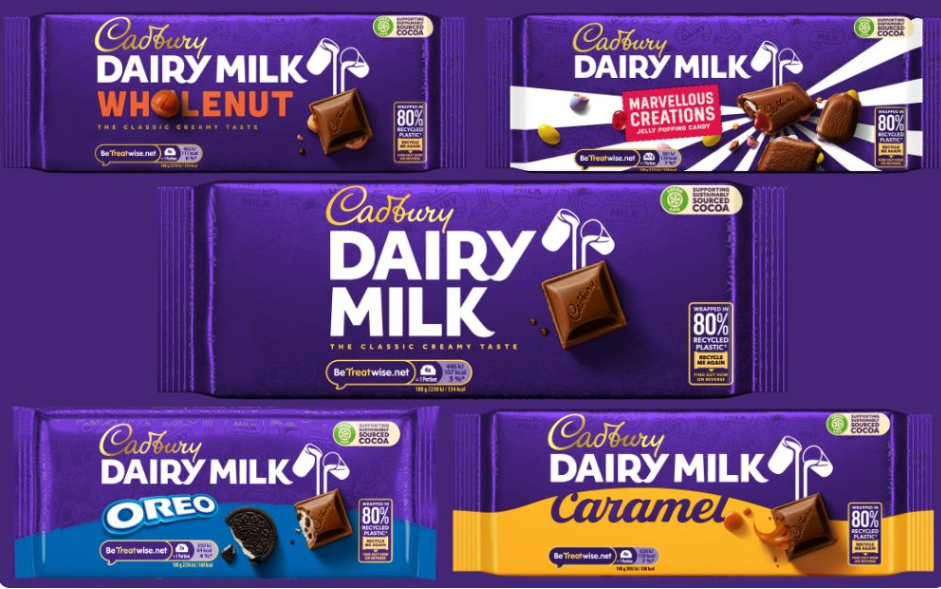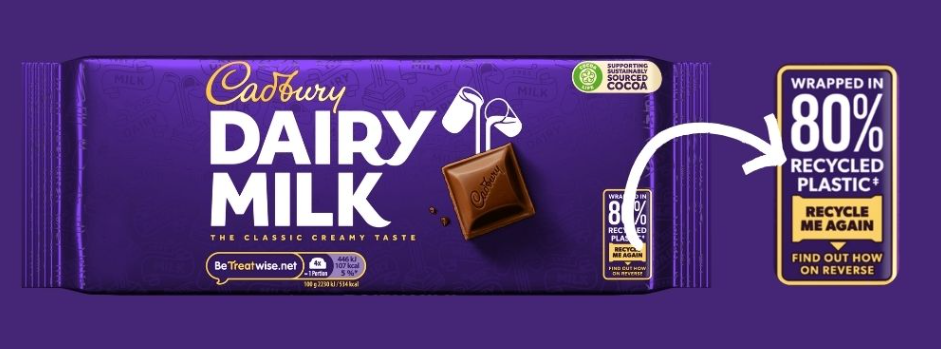

Mondelēz International Unveils 80% Recycled Plastic Packaging for Cadbury Sharing Bars
Mondelēz International, the company behind the iconic Cadbury brand, is taking a bold step toward sustainability by introducing new packaging for its core sharing bars in the UK and Ireland. From 2025, these bars will feature wrappers made with 80% certified recycled plastic—a milestone for Cadbury and the highest percentage of recycled flexible plastic used across the brand globally.
The packaging initiative, a collaboration with Amcor, utilizes cutting-edge materials like AmPrima® recycle-ready solutions and AmFiniti™ recycled material. These innovations are rooted in advanced recycling technology, which transforms post-consumer plastic waste into food-grade products. The move aligns with consumer demand for more sustainable packaging and helps Mondelēz meet upcoming European Union regulations, such as the Packaging & Packaging Waste Regulation (PPWR).
Scaling Sustainability
The project is set to roll out in phases, ultimately encompassing approximately 300 million Cadbury sharing bars by 2026. This ambitious effort underscores Mondelēz’s commitment to increasing the use of post-consumer recycled plastics across its portfolio.
The recycled plastic content is verified through the ISCC PLUS certification and mass balance approach, ensuring sustainability standards are met. Mass balance tracks the proportion of recycled versus virgin plastic used during manufacturing, a method widely adopted by global companies to integrate recycled materials into their supply chains.
Consumer-Friendly Packaging
To help consumers engage with the new packaging and its recycling journey, Cadbury’s wrappers will feature on-pack labels and QR codes. These codes provide detailed explanations of the mass balance process and direct consumers to WRAP’s Recycle Now® locator tool, enabling them to find local recycling points for various materials.
A Circular Approach to Packaging
“Our new packaging solution for Cadbury sharing bars exemplifies how innovation and sustainability can go hand in hand,” said a spokesperson for Mondelēz International. “By incorporating advanced recycling technology and certified recycled content, we are helping reduce waste while maintaining the premium quality our consumers love.”
This initiative is part of Mondelēz International’s broader efforts to create a circular economy for plastics and meet its sustainability targets. The transition to more sustainable packaging highlights the brand’s dedication to reducing environmental impact while enhancing consumer trust and transparency.
As the world shifts toward more sustainable practices, Mondelēz International’s initiative sets a benchmark in packaging innovation, proving that even the sweetest treats can have a lighter footprint on the planet.







